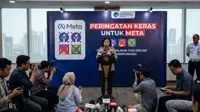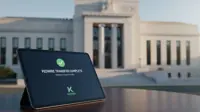Reserve Bank of India had on 21 January 2019 released a policy paper on `Authorisation of New Retail Payment Systems’ on its website and invited public comments and feedbacks thereon, before finalising the policy.
Based on the feedback received, RBI had, in the Statement on Developmental and Regulatory Policies issued with the monetary policy statement of 7 August 2019, stated that in order to benefit from diversification of risk as also to encourage innovation and competition, RBI will issue instructions on ‘on tap’ authorisation to entities desirous to function / operate / provide platforms for Bharat Bill Payment Operating Unit (BBPOU); Trade Receivables Discounting System (TReDS); and White Label ATMs (WLAs).
Reserve Bank of India (RBI) has come out with its policy on on-tap authorisation for the payment platforms,including Bharat Bill Payment Operating Unit (BBPOU), Trade Receivables Discounting System (TReDS) and White Label ATMs (WLAs).
The banking sector regulator has also prescribed minimum requirements, including minimum capital required, for entities to be eligible to act as retail payment systems.
All payment system operators should have a mnimum net worth of Rs100 crore and this has to be maintained at all times. Applicant must have domain experience in the field of bill collection for a minimum period of one year. Company should be registered under the Companies Act, 2013.
Entities with foreign direct investment (FDI) / foreign portfolio investment (FPI) / foreign institutional investors (FII) shall meet the capital requirements as applicable under the extant Consolidated FDI policy guidelines.
The memorandum of association (MOA) must cover the specific activity.
Fit and proper criteria will be assessed by RBI.
The overall financial strength of the promoters / entity, sound technological basis to support its operations, management, governance etc shall be other important criteria.
For Trade Receivables Discounting System (TReDS), opertors should have a minimum paid-up equity capital of Rs25 crore. Non-promoters should have a shareholding of up to 10 per cent of equity capital.
WLA Operators (WLAOs) should have a net worth of Rs100 crore (to be maintained at all times) ATMs to be deployed in the following ratio: 1:2:3 for Metro and Urban, Semi-Urban and Rural Regions.
Among the various regions, the ratio will be in favour of rural regions. If a WLAO deploys adequate ATMs in a rural region, it need not deploy ATMs in metro, urban or semi-urban regions to meet the ratio requirements. If a WLAO deploys ATMs in a semi-urban region, it shall deploy adequate ATMs in a rural region as per the ratio and may not deploy any ATM in a metro or urban regions.
RBI said the KYC requirements for retail payment systems shall be as per the Master Directions on Know Your Customer (KYC) issued by the Department of Banking Regulation (DBR), Reserve Bank of India.
The payment system operators should ensure interoperability among different retail payment systems.
The authorisation would be given based on (a) merits of the proposal, and (b) Reserve Bank’s assessment of potential for additional entities in that segment.
The applications for authorisation shall be submitted to
The entity / promoters / promoter groups should conform to the Reserve Bank’s ‘fit and proper’ criteria including but not limited to the following:
The entity shall have a past record of sound credentials and integrity.
Director of a promoter company / group company should have a record of financial integrity; good reputation and character; honesty; etc.
Such person shall not have incurred any of the following disqualifications –
· Convicted by a court for any offence involving moral turpitude or any economic offence or any offence under the laws administered by the RBI;
· Declared insolvent and not discharged;
· An order, restraining, prohibiting or debarring the person from accessing / dealing in any financial system, passed by any regulatory authority, and the period specified in the order has not elapsed;
· Found to be unsound mind by a court of competent jurisdiction and the finding is in force; and Is financially not sound;
RBI said its decision on whether a person is a fit and proper person shall be final.


















